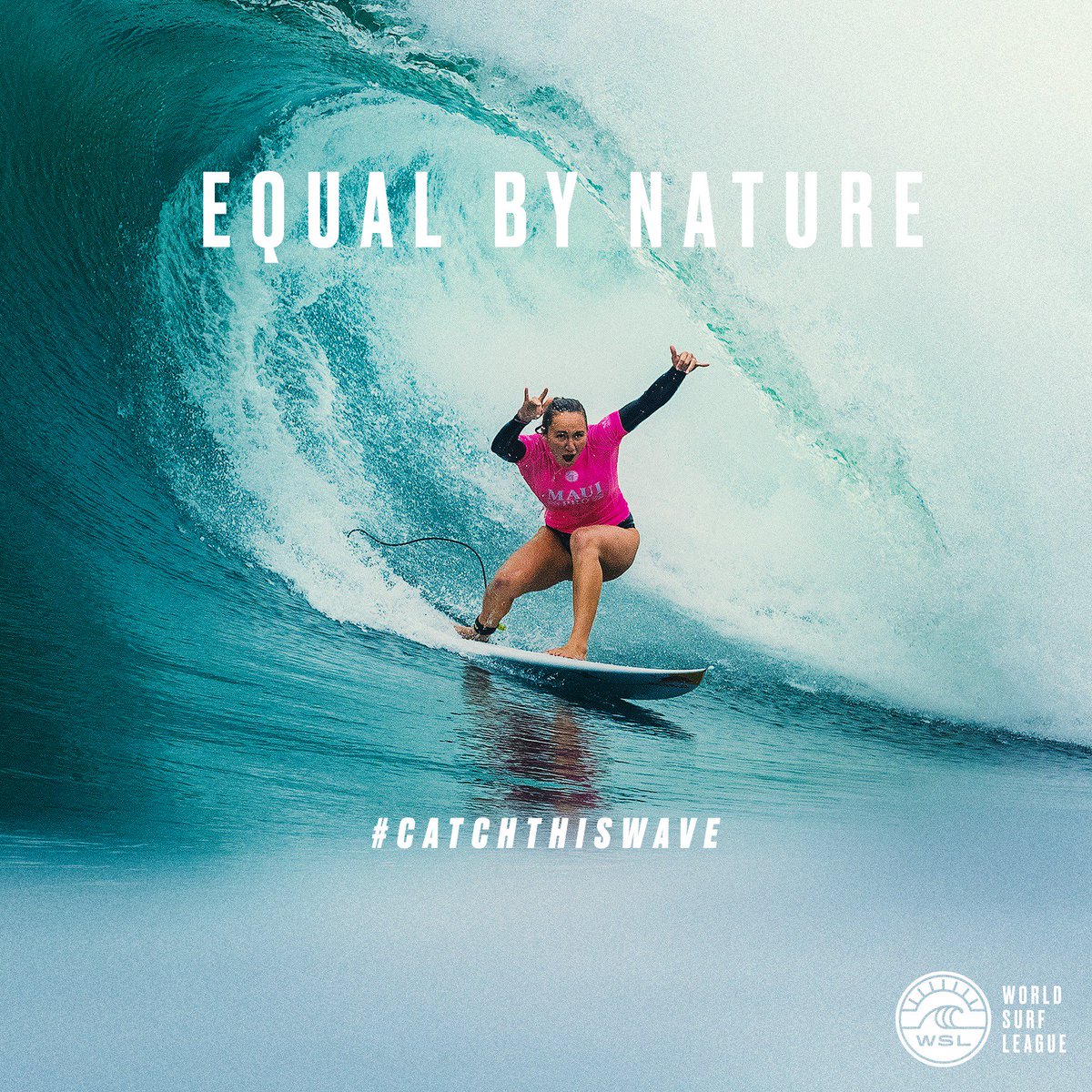
In 2018 there was plenty of righteous celebration — and sadly plenty of comment board grumblings — when the WSL announced pay parity for men and women. Finally.
Having never surfed competitively let alone professionally, I often wonder what equality looks like for the everywoman surfer when you step outside the realm of pro surfing. Are women considered equals in the line-up? And how do we measure equality in the surf?
The resource we’re all after is waves. So is our wave count a currency for measuring our worth in the water? Or is it something else entirely? Skill is the obvious predetermining factor of who will nab the most waves. The best surfers get the best waves, be they men or women. But there’s more to it than that right? Beyond tallying waves, what I’m really talking about is a feeling. How a woman feels in the water in relationship to the men around her. Whether she feels that she belongs.
Of course feeling is inherently subjective. A quick survey of my surfing mates reveals this. I know a couple of women who call North Narrabeen home. One says she’s been treated with nothing but respect by men in the water. The other says she’s often intimidated by the machismo, particularly when the surf’s good.
Personally, I’ve felt both wholly encouraged by blokes and completely belittled. If an interaction feels off, I often conduct my own crude litmus test by posing the hypothetical question: Would he have treated another man like that? Sometimes it feels like a definitive yes or no. Sometimes it’s just impossible to know.
I’ve been involved in a few verbal stoushes with men in the surf, but it’s not these instances that have left me feeling the most uncomfortable. It’s the instances where I’ve felt hyper aware of my gender, and further to that my sexuality.
Years back I was surfing Green Island and a bloke I’d been talking to the day before was out. We chatted and he gave me a few pointers about the sweep and line up markers. They were unsolicited but appreciated. As the surf evolved the man began to full on coach me. A fifty something bloke barking orders at me: a twenty-eight year old first time mum with her hubby and one year old sitting on the beach, and thirty odd others in the line-up.
It was mortifying. It didn’t register as abuse at the time, but it was an abuse of sorts: an intrusion into my surfing experience. As for the litmus test: there’s no way he would’ve singled out and patronised a bloke like that. My being a woman was part of his act.
By contrast the most humiliating encounter I’ve had in the surf happened without a word being spoken to me. It left me feeling barren of any type of presence. My second child was around 6 months old. I was still breastfeeding and felt completely naked despite my steamer: a vulnerability that comes with your body not being entirely yours, and the responsibility of sustaining a life beyond yours.
I decided to venture around the bends to surf Newport Peak. It was grey and drizzling, the surf a smooth 3-4 foot. I paddled out to a large bunch of rowdy teenage boys carrying on. Before long they began to sing an anthem I remembered the boys singing at Uni: I wish that all the ladies…were waves in the ocean. And I was a surfer. I’d ride them in motion. They continued with various lyrical compositions — all of which reduced women to being sexual playthings that could be poked, creamed, ridden and so on for male pleasure. Hearing this at Uni was a laugh and I relished giving it back to the boys by bellowing retaliatory versions with friends: I wish that all the fellas. But here, I was a tiny isle, alone in a sea of cocky bravado and all I wanted was to disappear beneath the tide line. I wanted to be invisible, but the truth is, I already was.
An elder statesman paddled out to raucous welcome. I don’t know if he heard the content of their chorus. I like to think he didn’t. But he certainly didn’t look at me. I was invisible to him too. One of the boys eventually gestured to those still singing that I — a woman — was present. One by one they stopped singing. A bunch of pubescent boys had made me feel so humiliated I was on the verge of tears. I was so rattled by the experience I didn’t surf the peak again for another couple of years.
As for the litmus test…well, I think the truest test was the shame and embarrassment that seeped through me like the creep of bright red along litmus paper. I was invisible yet hyper aware of my womanhood. I certainly wasn’t an equal in that lineup and it felt like shit.